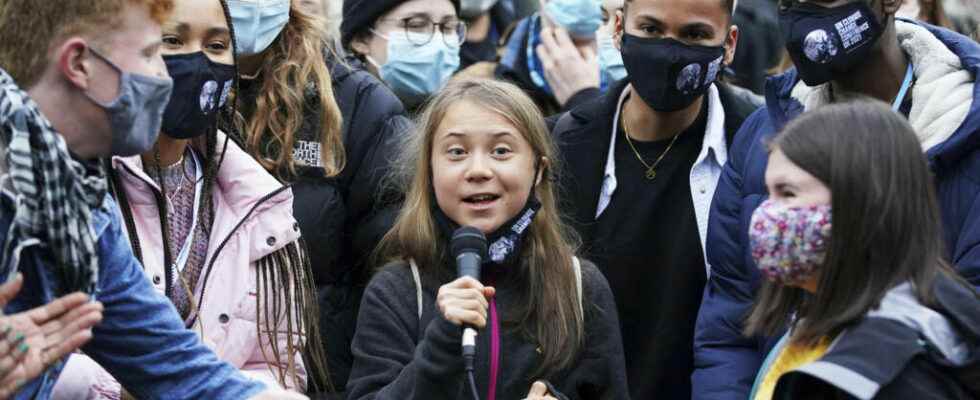This is the event release of this Thursday, October 27, “The big climate book”, directed by the young Swedish Greta Thunberg, initiator of the strikes for the climate. A book that brings together the contributions of a hundred experts, including the Frenchman Lucas Chancel, economist and co-director of the laboratory on global inequalities. Maintenance.
RFI: The big climate book under the direction of Greta Thunberg, is a choral work, a state of climate science. How was this project born?
Lucas Chancell: The editors and Greta Thunberg wanted to bring together contributions from a group of experts, scientists and climate actors to have the broadest possible overview of this issue in order to inform to accelerate. Because we are really not going fast enough, compared to the acceleration of the climate which is starting to get carried away, we see it almost everywhere in the world.
The idea that somewhat underlies this project – especially with regard to the passages written by Greta Thunberg – is the transmission of knowledge. Is there a lack today? Are global societies not sufficiently informed of the phenomena linked to global warming?
We need to continue to understand the problems, the sticking points. We therefore need more work, more research to continue to see where we can unlock these blockages. I think in particular that one of the real locks today is on the question of justice in the transition. Moreover, there are also a lot of things that we already know and sometimes there is also a form of blindness to information that already exists. But the fact of having this moment when we will be able to discuss it again is also important. Basically, the more we talk about this problem in the media, in our discussions, the more tools we will have to move forward. How do we move forward collectively through public policies? The book also emphasizes this point.
►Also read: “The Great Climate Book”, an overview of the climate challenge led by Greta Thunberg
Precisely, the contribution that you co-sign with Thomas Piketty is entitled “No transition without redistribution”. It starts from an observation, from the distribution of wealth. Are the inequalities in terms of CO2 emissions glaring today?
Indeed, all humans contribute to climate change today, but not in the same way. You have 10% of the world’s population contributing about half of the climate problem. And the question is: how do we manage to get most of the population on board in the transition? We will all have to make an effort, but we also see that these efforts will not have to be made by everyone in the same way. And moreover, there are also polluters who are very constrained in their ability to act; there, I am thinking of the working classes, part of the middle classes, for whom it is not easy to transform their heating system, and today, it seems to us that we are not providing enough aid to help these families. How is it that in the coming years, we allow society to speed up on these issues, by making greater use of the leeway of the wealthiest, that is to say via tools that we know are quite classic , especially taxation.
Are we taking the road? Are there any relevant projects currently in place?
Canadians implemented a carbon tax fifteen years ago, a large part of the revenue from which is redistributed to the working and middle classes. I think that’s what this somewhat wide-ranging look at what’s happening beyond our borders teaches us a little: when we don’t take enough account of this need for justice in the transition, well, that doesn’t not working. Today, we really have an interest in doing more. This may mean progressive energy pricing taking better account of the needs and constraints of households: we will thus reduce the price of energy to basic levels, corresponding to the constraints of some, then we will increase this price for consumption that would be beyond the absolutely necessary energy consumption.
